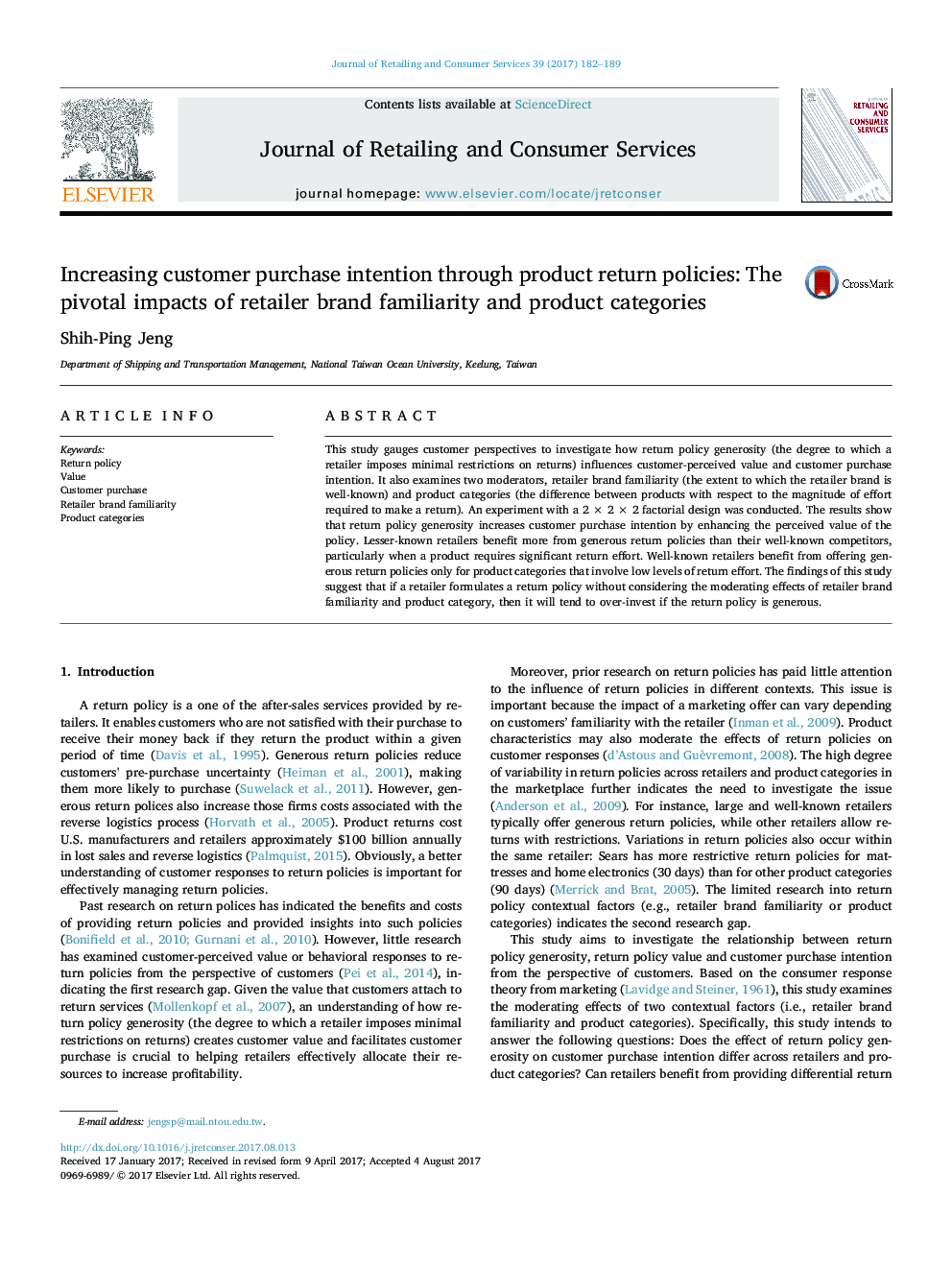| Article ID | Journal | Published Year | Pages | File Type |
|---|---|---|---|---|
| 5111334 | Journal of Retailing and Consumer Services | 2017 | 8 Pages |
Abstract
This study gauges customer perspectives to investigate how return policy generosity (the degree to which a retailer imposes minimal restrictions on returns) influences customer-perceived value and customer purchase intention. It also examines two moderators, retailer brand familiarity (the extent to which the retailer brand is well-known) and product categories (the difference between products with respect to the magnitude of effort required to make a return). An experiment with a 2 Ã 2 Ã 2 factorial design was conducted. The results show that return policy generosity increases customer purchase intention by enhancing the perceived value of the policy. Lesser-known retailers benefit more from generous return policies than their well-known competitors, particularly when a product requires significant return effort. Well-known retailers benefit from offering generous return policies only for product categories that involve low levels of return effort. The findings of this study suggest that if a retailer formulates a return policy without considering the moderating effects of retailer brand familiarity and product category, then it will tend to over-invest if the return policy is generous.
Keywords
Related Topics
Social Sciences and Humanities
Business, Management and Accounting
Marketing
Authors
Shih-Ping Jeng,
